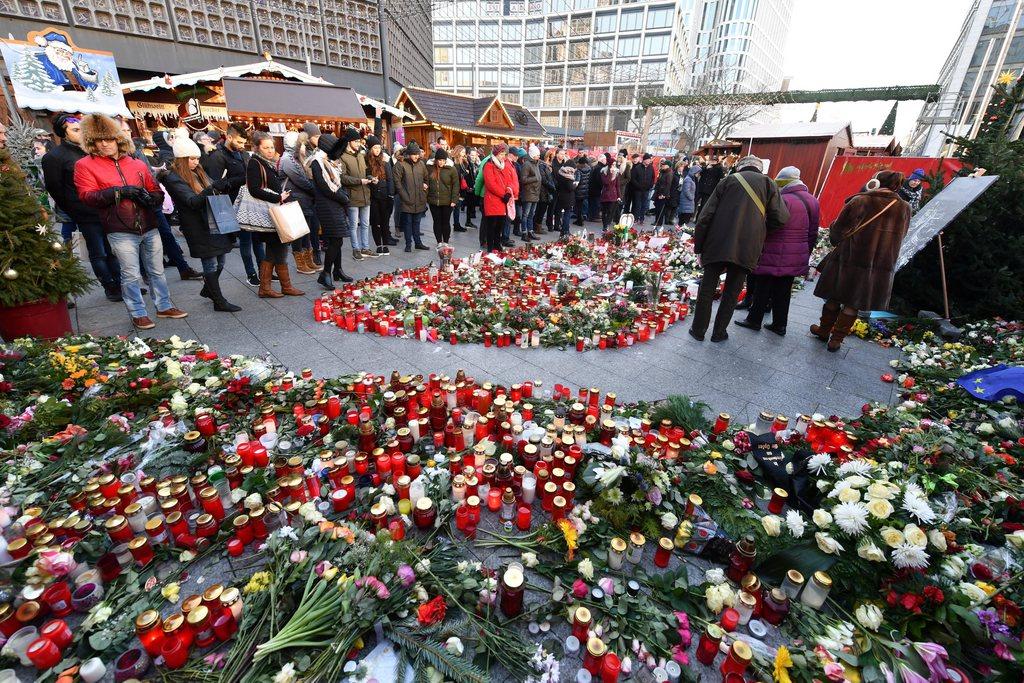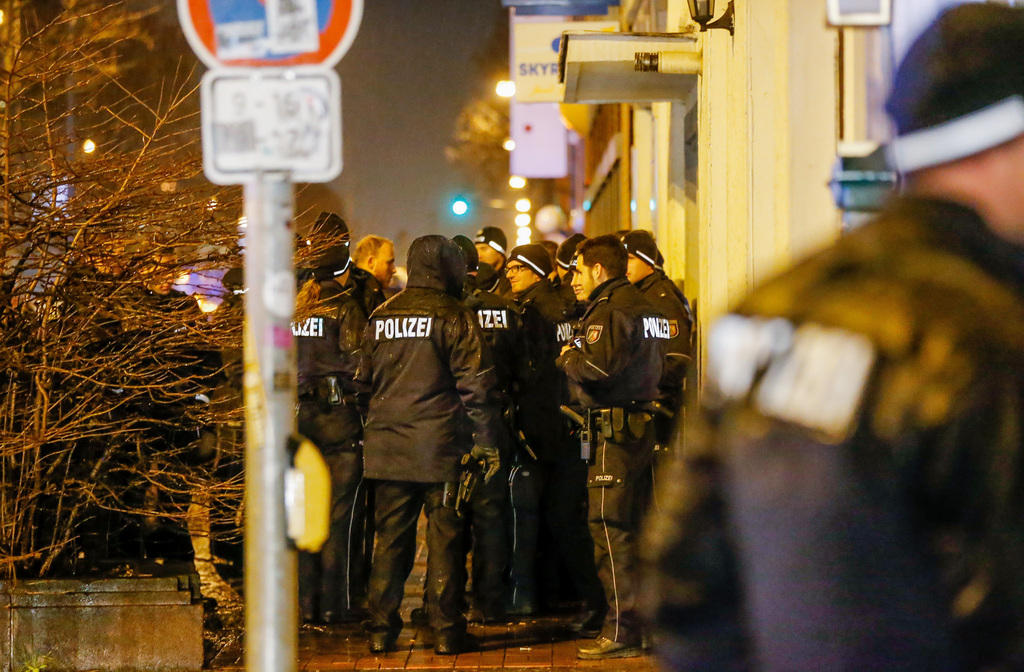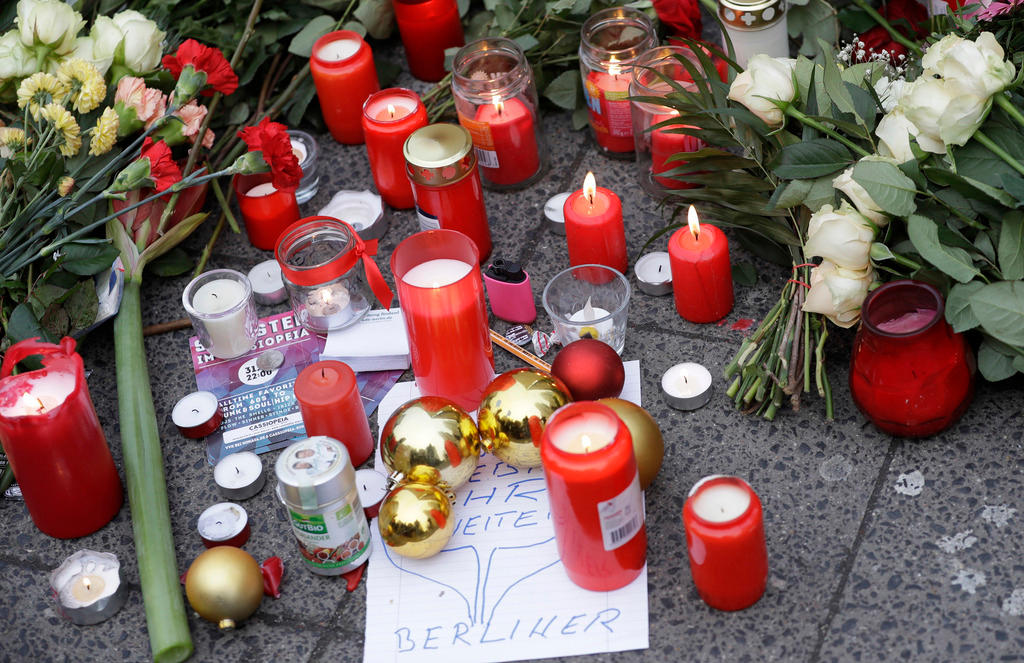Suspected Swiss links to Berlin market attack

A new criminal investigation focuses on whether the Berlin Christmas market attacker had links with people in Switzerland who were involved with Islamist extremist groups.
Swiss federal prosecutors opened criminal proceedings against “unknown persons” based on a tip-off from foreign authorities, the Swiss attorney general’s office told swissinfo.ch on Thursday. The probe focuses on suspicions that two Swiss laws were broken banning participation or support from criminal organisations and Islamic terror groups.
Prosecutors are working closely with the Federal Office of Police (fedpol) and coordinating with foreign authorities, said the attorney general’s office, which added that it could not provide further details now.
The Islamic State group claimed responsibility for the truck attack on December 19 that left 12 dead and dozens more injured. It was the first mass casualty attack carried out by Islamic extremists on German soil.
Anis Amri, the 24-year-old Tunisian man who rammed a stolen truck into the crowded market on December 19, was shot dead four days later by Italian police near Milan.
German federal prosecutors said on Wednesday that they were investigating a second Tunisian migrant for possible involvement.
On the suspect’s trail
The suspect’s movements from Germany to Italy led to conjecture he may have passed through Switzerland, possibly with the help of accomplices. However, German police later found he had travelled through the Netherlands and France.
“On the basis of the available information, it is important to clarify whether any references to persons in Switzerland are credible,” André Marty, spokesman for the AG’s office, told Swiss public television, SRF. “That could be of great relevance to us in Switzerland, but also for our colleagues in neighbouring countries.”
Amri reportedly visited Switzerland for two weeks in 2015 to search for work, his brother and sister told Swiss newspaper SonntagsZeitung, but Swiss authorities could not confirm his movements. That visit occurred after Amri’s release from a four-year prison stint in Italy where he may have been radicalised. Amri then went on to Germany.
Germany rejected Amri’s application for asylum and ordered him deported, the New York Times reported. He allegedly took a bus from the southern German town of Friedrichshafen on Lake Constance to Zurich in the summer of 2016, but never made it to Switzerland a second time because the German police arrested him at the border.
He was released after a brief detainment due to the lack of Tunisian paperwork and contested citizenship status.
A legal debate
Some Swiss authorities and lawmakers now want Switzerland to change the law so that suspected sympathizers of terrorist groups might be arrested before an attack can be carried out. But other lawmakers worry that might infringe on civil liberties, Swiss newspaper Le Temps reported.
The Swiss cabinet may introduce new such preventive measures against terrorism by summer based on the work of federal and cantonal officials. “It will also be necessary to examine in this context the desirability of proposing new grounds for detention under federal law,” Swiss lawmaker Jean Christophe Schwaab, who chairs a parliamentary committee on judicial matters, wrote a colleague.
Current law only allows detention when a person has threatened to commit a serious crime or if there is serious cause for concern that it might be committed. Making it easier to detain people, however, also might conflict with the European Convention on Human Rights.
In a related development it was reported on Thursday that this summer Bern University will start further training sessions for imams and preachers of other religions who work in prisons, hospitals and asylum centres. This new initiative is part of nationwide efforts to tackle radicalization.
Isabelle Noth, a professor of religion psychology at Bern University who manages the course, said there was a real need: “One of the difficulties is that the authorities are not aware of the content of the religious sermons given in prisons. This training course should help deal with that problem and also better identify signs of radicalisation.”
Attacker “probably” bought weapon in Switzerland
On Friday, German television station ZDF reported as part of an investigation that Amri “would probably” have procured his gun – which he allegedly used to kill the driver of the stolen truck and to shoot at Italian authorities – during one of his stays in Switzerland.

In compliance with the JTI standards
More: SWI swissinfo.ch certified by the Journalism Trust Initiative


You can find an overview of ongoing debates with our journalists here. Please join us!
If you want to start a conversation about a topic raised in this article or want to report factual errors, email us at english@swissinfo.ch.